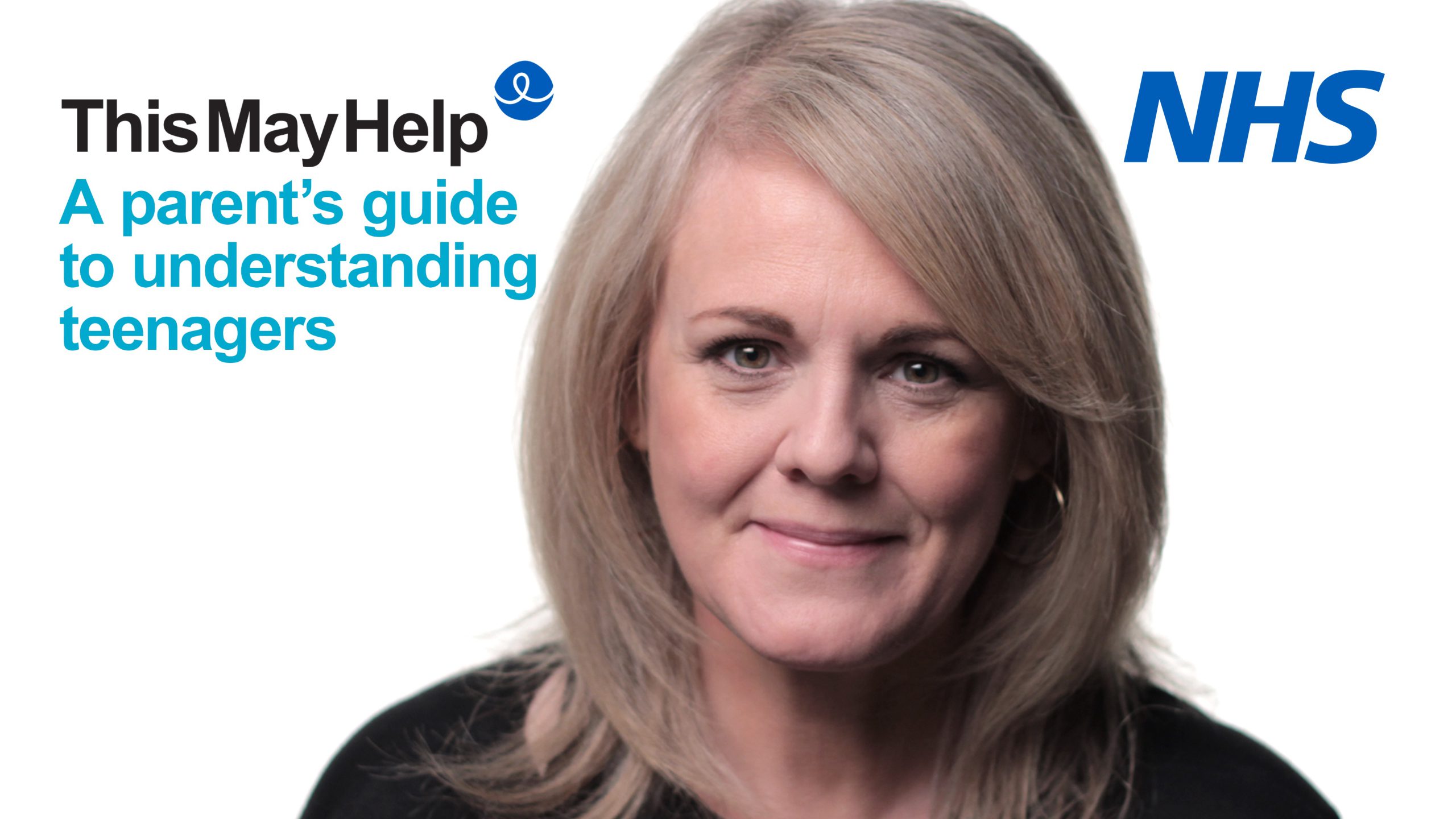Young people often struggle to meet the conflicting expectations of parents, friends, teachers and other authority figures, and can find it difficult to talk about what they’re going through. It’s common for young people to bottle things up and, instead of talking about it, relieve the stress through some sort of disruptive behaviour.
In this video Sally Lindsay shares some advice from NHS mental health professionals on positive parenting strategies for the teenage years.

Be curious rather than judgemental
The disruptive behaviour of teenagers is often dismissed as ‘attention seeking’ but there is often a complex emotional issue at the heart of it. Rather than being judgemental, try to be curious and compassionate about what’s behind it.
It’s important to remember that teenage brains are still forming, which means it’s a lot harder for them to think rationally than it is for adults. It’s our job as parents to guide them as much as possible and act as role models, while still giving them the space to discover and learn from their own experiences.
How to begin a conversation with a troubled or troublesome teenager
- Be specific about a particular incident or behaviour that you’re concerned about rather than generalising.
- Tell them what you have noticed, why you’re concerned about it and ask how they’re doing.
- Let them know that you’re there to support them and want to help.
- If they don’t want to talk to you, encourage them to talk to someone else with whom they perhaps have less of an emotional connection but can trust.
- Text messages and emojis can help to ease you in if conversation is difficult at first.
Some things to avoid
- Sentences that start with the word ‘you’ can put people on the defensive. It’s better to start with ‘I’, such as ‘I’ve noticed’, or ‘I’m concerned about…’.
- Their behaviour may seem irrational to you but it’s important to take them seriously and avoid undermining the importance of the underlying issue or their feelings towards it.
- Don’t dismiss it as ‘just a phase’ or think that the problem will go away if you ignore it.
- If they decide to open up to you, don’t go rushing in with all the answers. Just listening to them and being supportive will make a huge difference.
Find the right balance
As much as they might resist them, teenagers need boundaries, but finding the right balance between keeping them safe and giving them independence is never easy. One of the hardest skills as a parent is knowing when to insist and when to indulge them, but many parents find that doing a bit of both by establishing hard and soft lines tends to build trust and gets teenagers used to the idea of taking responsibility.
Guidance for setting boundaries
- It’s important to remember that teenagers and parents mostly want different things. Where teenagers want freedom and to have fun, parents want them to stay safe, be responsible and make good decisions. Focus on finding some middle ground that can work for both of you.
- It helps if you can be open an honest with each other about feelings and concerns and to learn to make agreements rather than having expectations.
- Making agreements that allow them some freedom and fun but include and prioritise other activities such as homework, exercise or helping with household chores can also help you to find the right balance. Be prepared to negotiate.
- Make sure that the boundaries are realistic, reasonable and communicated clearly. Be clear about what behaviours are not acceptable and what the consequences of breaking those boundaries will be.
- It’s normal for young people to use different strategies for pushing the boundaries, so try to be consistent and stick to agreements, as failing to do so will communicate that the boundaries are unimportant and flexible. Follow through with any agreed consequences.
Give them space to grow
Our teenage years are when we begin to establish our individual identity in the world, and it’s a time when we tend to feel most insecure and easily influenced by other people’s opinions. Be mindful of their feelings, be supportive when they’re struggling, and try to respect their personal space and privacy.
Tips for supporting a teenager’s journey into adulthood
- Allow and encourage them to make their own choices about their own style and identity
- Try to support them in finding their own solutions to problems. Acting as a sounding board and sharing your own experiences rather than telling them what to do or fixing things for them will help them to figure things out for themselves and to feel more confident about making good decisions.
- A relationship is a two-way street. Just as you want them to respect the boundaries set by you, they want you to respect their boundaries too. Their bedroom and their personal possessions, their friendships and their interests are all private and need to remain so unless you have a very good reason to cross the boundary, such as if you feel they may be in danger or at risk of getting into trouble.
- If you are concerned about their behaviour and are considering searching their bedroom, visit our dedicated page on How to establish trust and boundaries with a teenager.
- If you feel you need to discuss your teenager’s behaviour with someone else, avoid going into detail about their private lives with anyone other than those who really need to know.
Some additional resources that may help.
- For advice on how to have a conversation with a child about mental health, visit our dedicated page
- NHS advice for supporting the mental wellbeing of others. Better Health: Every Mind matters
- For information on how to access NHS Mental health services click here
- Happy Maps has reliable resources recommended by parents and professionals